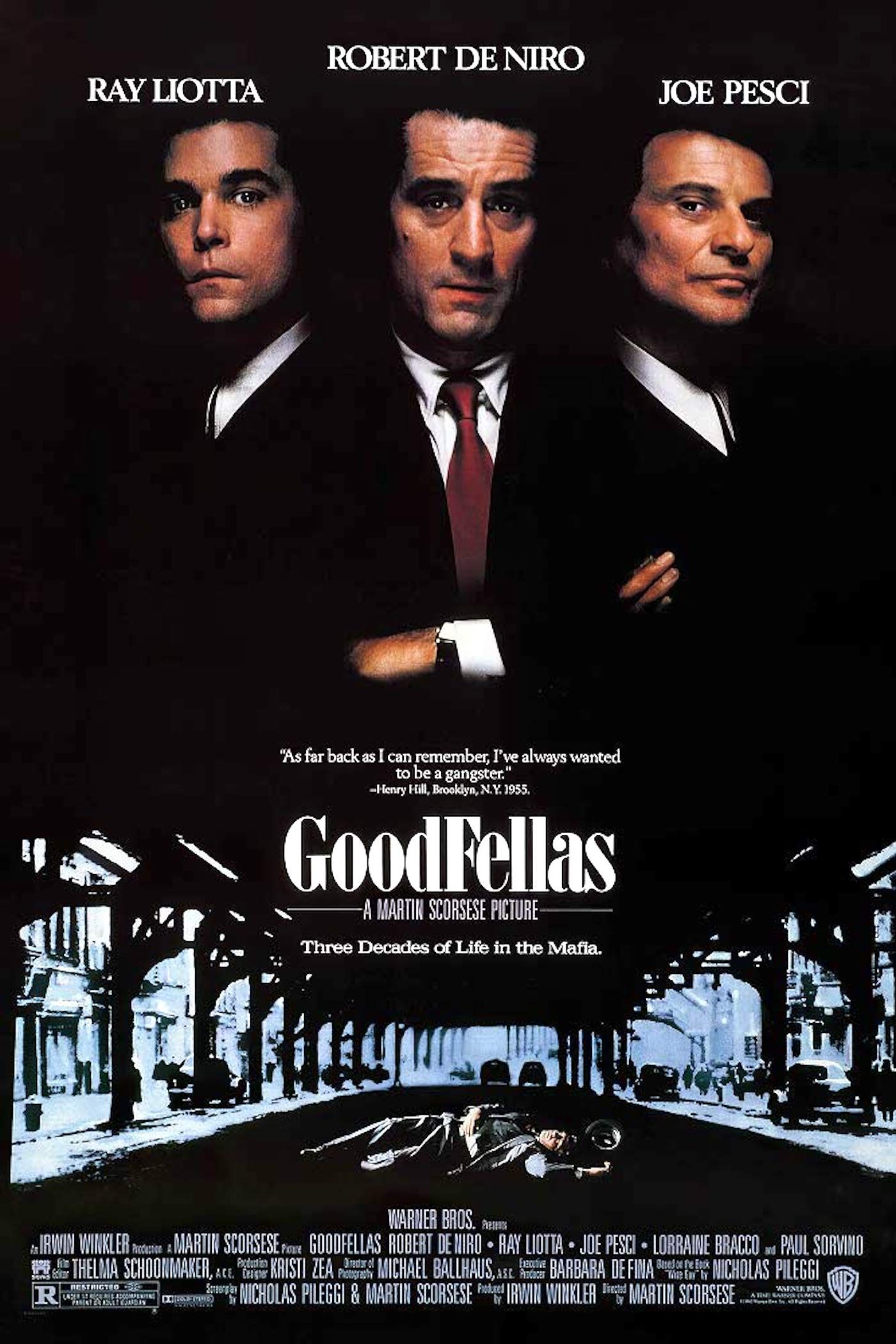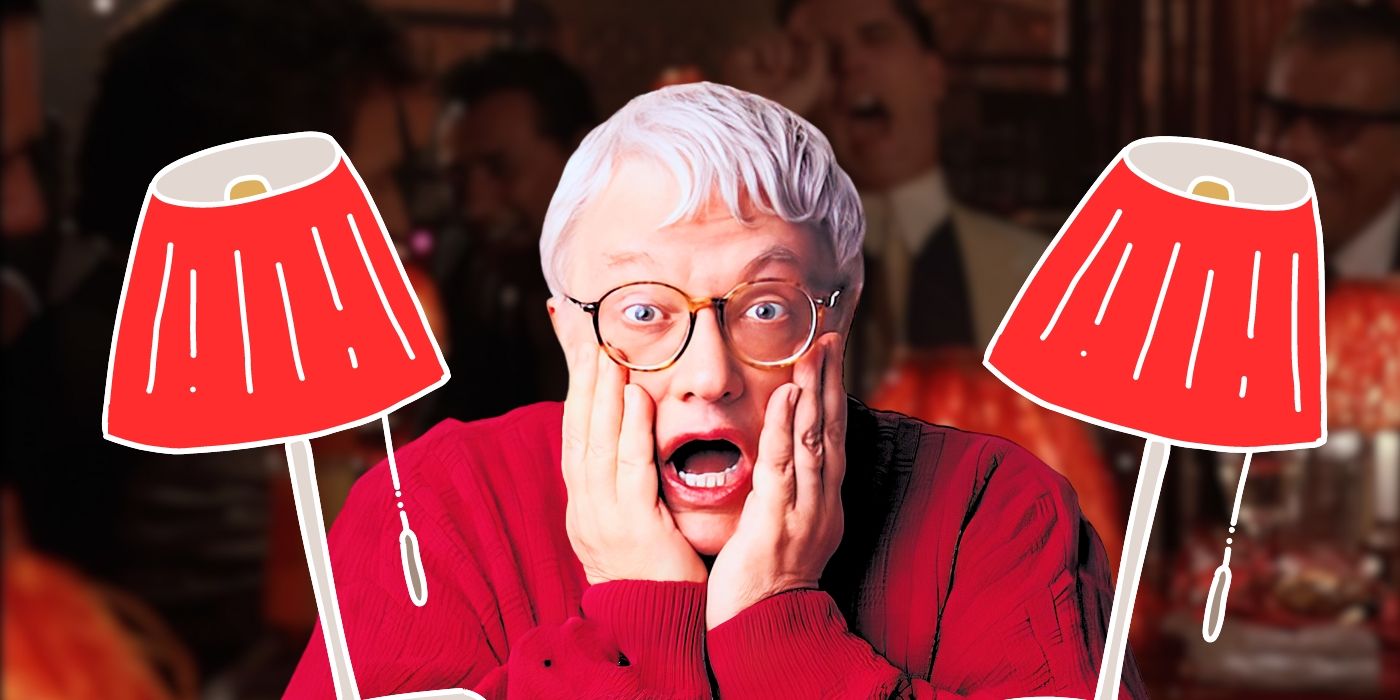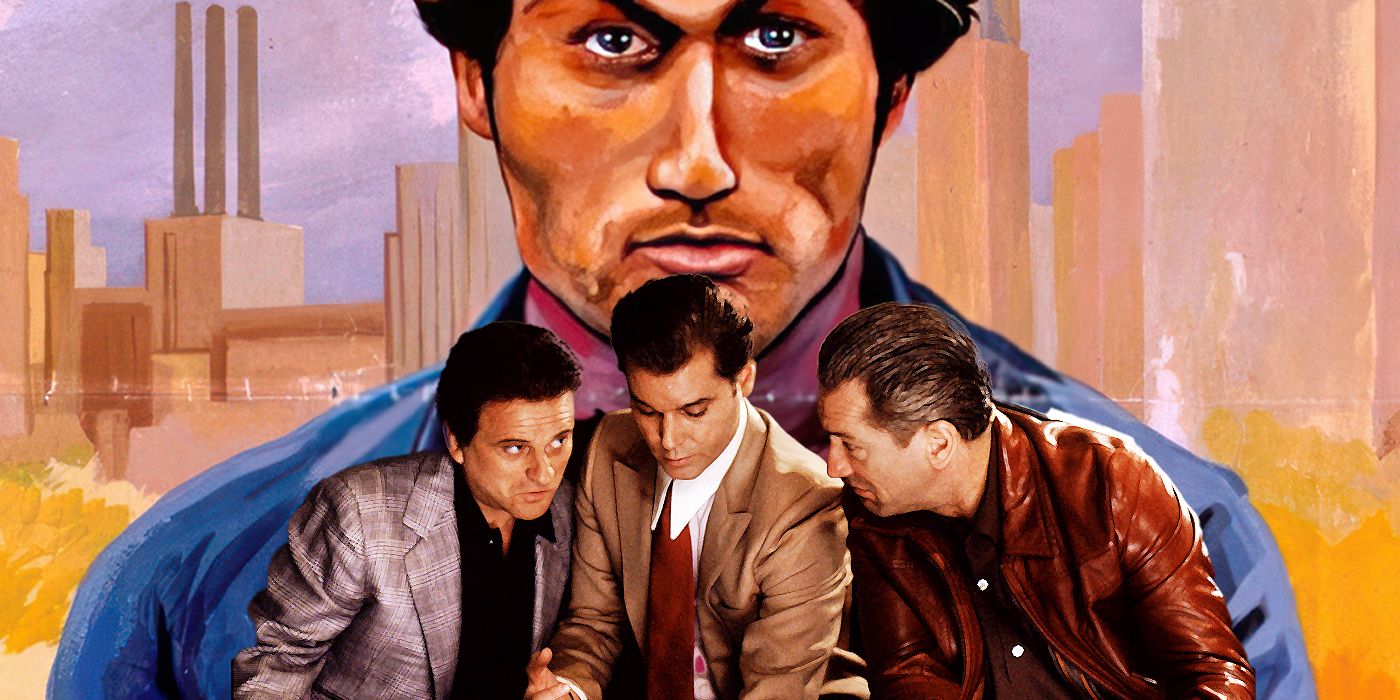The Big Picture
- The Death Collector showcased Joe Pesci's characteristic short temper, setting the stage for his future iconic roles in Scorsese's films.
- The Death Collector, although a cult hit in the mid-'70s, lacked the self-awareness and elegance associated with Scorsese's crime epics.
- The careers of Joe Pesci and Frank Vincent are intertwined, with their friendship and professional relationship leading them to acting, eventually landing roles in The Death Collector.
Back in 1976, our preconceived notion of what a Martin Scorsese picture was was limited to a couple of masterpieces in Mean Streets and Taxi Driver, two films that would go on to define his career, the excellent drama Alice Doesn't Live Here Anymore, and a couple of inconsequential films that showed fascinations with the lascivious side of human (Boxcar Bertha) and the fragility of the masculine ego (Who's That Knocking at My Door?). In other words, Scorsese had not fully actualized, especially when it came to his collaborators. Films like Goodfellas and Casino undeniably owe their brilliance and unmatched rewatchability to Scorsese's direction, but everyone knows that there is no Jimmy Conway but Robert De Niro, and perhaps even more so, there is no Tommy without Joe Pesci.
Scorsese's career just wouldn't be the same with not only these wise guys but also without his many collaborators over the years, such as Thelma Schoonmaker (with whom he has had an illustrious creative marriage over the past four decades) and New York City mainstay character actor Frank Vincent, most well-known for his roles in The Sopranos and as Billy Batts in Goodfellas. When it comes to Pesci and Vincent, however, it was De Niro who drew Marty's attention to their acting chops, showing him the 1976 low-budget crime film The Death Collector (or sometimes entitled Family Enforcer).

Goodfellas
The story of Henry Hill and his life in the mafia, covering his relationship with his wife Karen and his mob partners Jimmy Conway and Tommy DeVito.
- Release Date
- September 12, 1990
- Director
- Martin Scorsese
- Cast
- Robert De Niro , Ray Liotta , Joe Pesci , Lorraine Bracco , Paul Sorvino , Frank Sivero
- Writers
- Nicholas Pileggi , Martin Scorsese
- Studio
- Warner Bros.
- Runtime
- 145 minutes
- Main Genre
- Biography
'The Death Collector' Is Good Old-Fashioned Mafia Madness
The Death Collector proves that Joe Pesci was Joe Pesci from the very get-go, exemplifying his characteristic short temper to the film's benefit. The movie tells the story of Pesci's character, a small-time thief turned debt collector for the mafia. The movie is brief and lacking in frills, but was a cult hit in the mid-'70s, circulating LA as an unapologetic answer to the gritty standards set by Mean Streets. The degree to which The Death Collector owes not only its success, but its very existence to the filmmaking of a hungry, young Martin Scorsese, only for the rest of his career to be in debt to this seldom-seen cult classic is downright poetic.

Roger Ebert's Favorite Mob Movie Isn't the One You're Thinking
Ebert says no finer film has ever been made about organized crime – not even 'The Godfather.'The movie (and its marketing) never shied away from referencing other, more well-known crime dramas such as Dog Day Afternoon or The Godfather (despite having almost nothing to do with either of those films, budget-wise or premise-wise). The movie went as far as to claim that "the mean streets just got meaner" on its DVD cover. The Death Collector would never have gained even the slightest traction that it did without the still-burgeoning career of Martin Scorsese. It's a fun movie, filled with mafia violence and tough guy posturing, but it is a crude imitation. It lacks the self-awareness and elegance associated with Scorsese's crime epics. Nevertheless, the director of the film, Ralph De Vito (who made The Death Collector his only director feature) made an incredibly competent and entertaining watch that is only enhanced by its association with its Scorsese regulars.
How Was Martin Scorsese Introduced to 'The Death Collector'?
In a 2019 back-and-forth between Quentin Tarantino and Martin Scorsese for the Director's Guild of America, Tarantino recalls seeing The Death Collector at an all-night theater in downtown Los Angeles circa 1982 at four in the morning. Marty casually responds by saying "Yeah, that's how we got Joe for Raging Bull," forever cementing The Death Collector in the annals of film history. Both directors seemed to have respect for the film, with Tarantino comparing it positively to Mean Streets, calling it the "exploitation" version of Scorsese's early masterpiece. Scorsese further explains that he and Robert De Niro tracked down a print of the film after De Niro mentioned that he found Pesci's performance compelling, having seen it on CBS.
Joe Pesci and Frank Vincent Were a Dynamic Duo Long Before 'Goodfellas'
It's important to remember that the careers of Joe Pesci and Frank Vincent are inextricably tied. After having established a strong friendship and professional relationship, the two more or less fell into acting. Vincent's lounge band act needed a piano player, for which they employed the talents of Joe Pesci (who didn't in fact play piano, but did play guitar). As their music wasn't really taking off the way that they had hoped, the two men began doing stand-up comedy. They auditioned for The Death Collector, and the rest is history.
Seven years removed from beginning a music career, Frank Vincent got into acting and went on to be one of the most recognizable character actors in mob movies to this day. While he never exhibited the star power of De Niro or Pesci, Vincent always had an impeccable screen presence that is clear from his very first frame in The Death Collector. He was the quiet, silent type that was balanced with Joe Pesci's equally intense but far more explosive presence. Outside of Scorsese's filmography, Vincent worked with other iconic New York filmmakers like Spike Lee who recognized the gravitas of his screen presence. Vincent was often a background character, but he nevertheless always conveyed a strength and dignity that set him apart from his mafioso counterparts.
We all know the illustrious that Joe Pesci has enjoyed. He is easily one of the most recognizable and iconic actors of his generation. From Goodfellas to Home Alone, Pesci is almost always the highlight of any film he's in. Scorsese even took the opportunity of The Irishman to explore the consequences and breakdown of the Joe Pesci archetype that, on the surface, never once seemed weighed down by even the slightest of moral considerations. Pesci's Tommy in Goodfellas could very much be the same person as Russell Bufalino in The Irishman, even though both are real men. This archetype that Pesci established goes all the way to The Death Collector. As a result, it isn't stretching it to say that it is clear that a film like The Irishman carries with it all the characters that De Niro and Pesci have played in past Scorsese films and those inspired by them. There is a throughline that starts in The Death Collector and ends in The Irishman as Scorsese winds down his career and meditates on his mortality and those of his many friends and collaborators. He continues to push himself artistically, as seen in last year's Killers of the Flower Moon, but his time as the father of the gangster seems to have come to a close, and it is with magnificent age and grace that he acknowledges that actors like Joe Pesci and Frank Vincent have helped to define his career.
Goodfellas is available to rent on Apple TV+ in the U.S.

